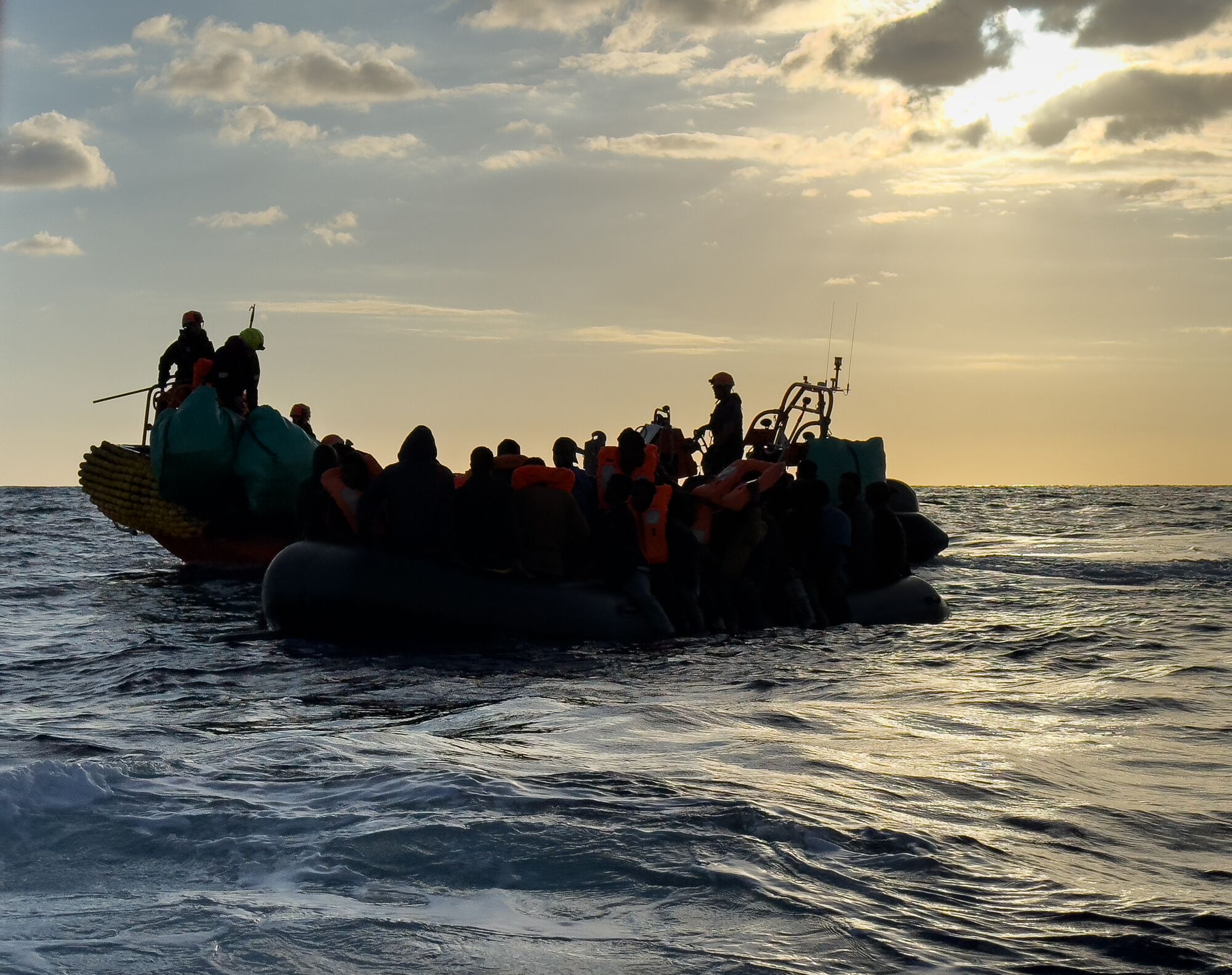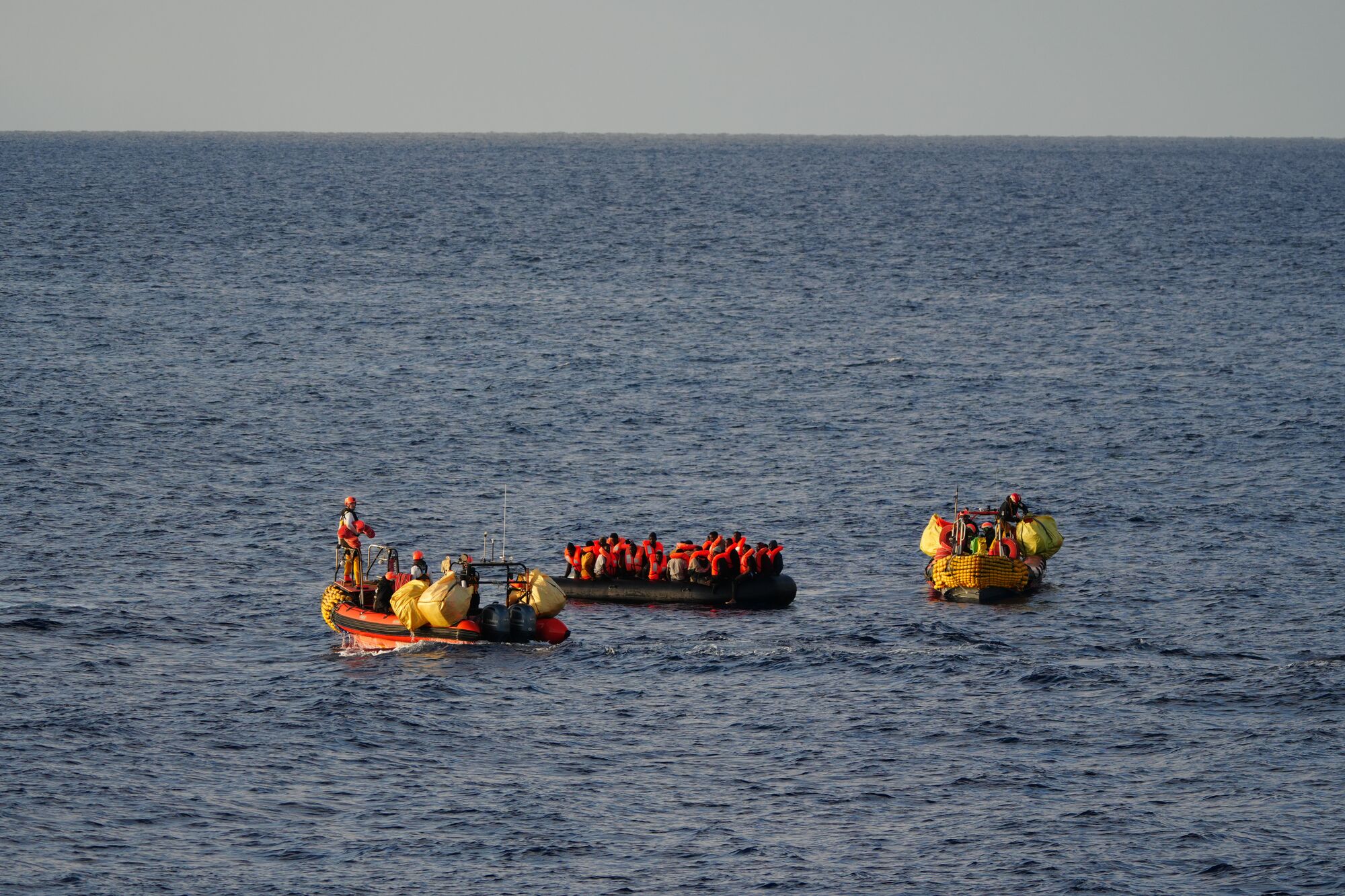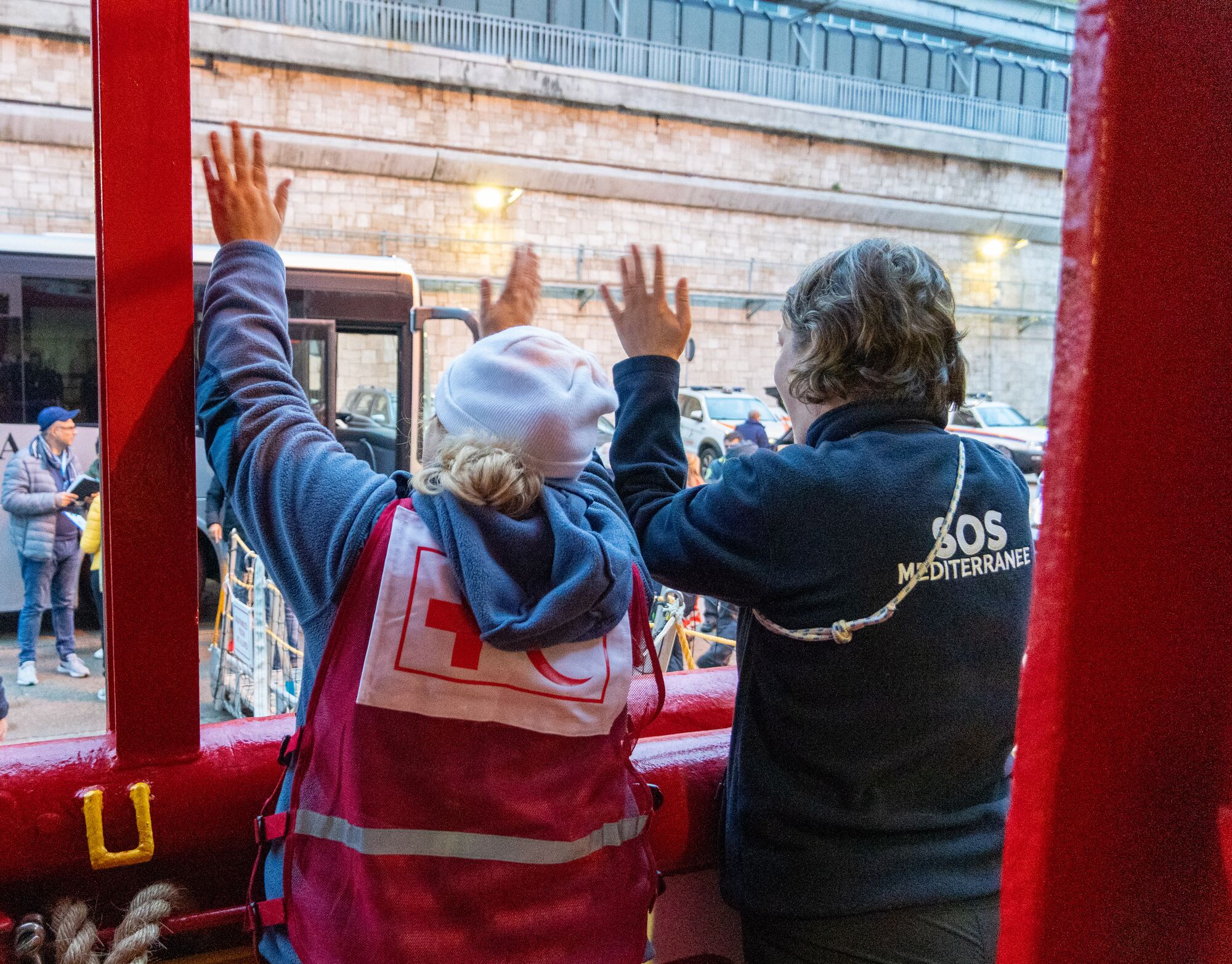“Let me be clear: I have no intention of stopping with music, but after holding a nightly concert aboard the Ocean Viking, well, I might as well.” The speaker is Kento, born Francesco Carlo. We spoke after his disembarkation from the former oil ship, now a symbol of the maritime and humanitarian organization SOS Méditerranée, which since 2015 has been raising awareness among the population on the issue of migration and actively operating on the central Mediterranean route with search and rescue operations.
Back to backIndeed, the news had arrived on the evening of the concert that in Sanremo in 2025 there will be no lyrics with main themes such as politics, humanitarian crises, ongoing conflicts in the world, and so on. Kento does not make uncomfortable analogies with other historical eras, perhaps because the evidence is stronger than any fantasy or speculation. But he says that now is the time, that now we need to work with freedom, to create an interstitial space in which we can propose an alternative. In other words, if one can – or must – choose when to take courage, this could be the historical jumble. Putting an idea in a song, telling the present without hiding.
«It's not easy. Many colleagues think like me, I'm especially referring to the rap scene, then maybe they decide not to expose themselves with their bars. I understand it. I took my path some time ago now.” Kento talked about (juvenile) prison, rights and how they are trampled upon; he talked about Palestine and the Gaza Strip, he denounced in music the condition of Southern Italy, gripped by the mafias. The evolution towards the sea is “just the natural outcome of my long collaboration with SOS Méditerranée”. From which a song will now be born – «I was finishing it just now, but I knew you would call me» – and which took place within an artistic and communication project to highlight what often remains invisible. “But also a documentary, we're still a bit secret, but you can write that.”
So what does a rapper do aboard the Ocean Viking?
What others do. First of all, it gives availability to leave with a 48-hour notice, suitcase always ready. Then we built my role on the ship together. I went on board as an observer, but it immediately turned out that there would be a need for an extra hand on the interceptor boats, the Ocean Viking has three of them and they are the vehicles that actually meet the migrant boats. So I started training to be part of the search and rescue team. It was also a good physical effort.

Photo: Morgane Lescot
The last time we spoke up Rolling you had talked about a big change happening for you. Where are you now?
At the antipodes. I'm processing the ship experience. I'm someone who has hair on his stomach, but we're talking about a different matter. Everything becomes in perspective, the online discourse, even certain bullshit that my colleagues write on social media… I knew the numbers of these rescues, I always kept informed. Touching them with your hands, however, is a different thing. It helps you reevaluate many things
Before Ocean Viking, your last stage was the Ariston in Sanremo, during the final evening of the Premio Tenco 2024.
We are used to seeing ships and the sea as symbols of freedom, but in those circumstances they become prisons. Then you start to think that the world is made up of two thirds of water and you come to reevaluate the role of writing, its power, and also yourself as a person and artist. Of course performing at the Premio Tenco is fantastic. But if mainstream music, as Carlo Conti actually said in his announcement on Sanremo, will not talk about these issues, we will have to talk about them in another way. It's not a dissing, I'm not interested, it's an observation: if large spaces are closed to us, we will have to create places of counter-information and counter-power, of antagonistic music.
In what ways of storytelling, though?
We must start from two observations: not everyone can be an activist, and even among activists not everyone would have what it takes to board the Ocean Viking. So what I say is that you need to inform yourself and find a way to change your perspective, and the first thing to realize is that for those who died at sea and for those who embark on a migration journey we are talking about numbers, of course, but those numbers are human beings. On social media you read appalling things when the topic comes up. I want to hope that even those who write certain things would be ready to reach out if they found themselves in a position to be able to save someone from a shipwreck. That makes the difference between life and death, everything starts from there. Then we can talk about migration policies, an area in which neither the right nor the left of our country have behaved well.
Already.
I'll tell you more: during my stay on board we carried out a rescue operation. The three dinghies descend, at a certain point we see a Libyan coast guard patrol boat coming towards us at very high speed (Ocean Viking operates off the Libyan coast in international waters, ed). One of the other two dinghies hurries to load as many migrants as possible, we are talking about only minors, and takes them to safety. Mine carries out a diversionary operation for the patrol boat, but when it realizes that we have no one on board, it discards and throws a wave of water on us. We know what the Libyan coast guard does, we know that they fired. They came at us at a frightening speed, it seemed to me they had some weapons drawn. It gets so close that I read a number on the side: 660. It is a very famous patrol boat, the Bari, given to the Libyans by the Italian government for the various agreements made over time, sadly known because the shots that machine-gunned the fishing vessel were fired from there of a Sicilian man in 2021. We were threatened with an Italian vehicle, probably also with Italian weapons and bullets.

Photo: Claire Juchat
And the boys you recovered?
A lot of them made music, rapped. They came from Gambia. As soon as we got on the ship we started partying, singing and playing. It was incredible. One of them told me: 48 hours ago I thought I was dead, and in fact when we reached them they were calm, resigned to their disappearance. It's what's called the submarine effect: there are studies that show that, for example, while a submarine is sinking, the sailors on board do not panic. There is no way out, they have accepted the fact that they are going to die. So when we raised these kids, well, they were born twice. The thing that worries me now is that as long as they were on the Ocean Viking they were treated like human beings. In Italy, now, I don't know. They are all child slaves, in fact, they had already been in Libya for many years.
Things that are known in theory, and yet…
Yet they don't touch each other and therefore don't concern us. The boys told me terrifying stories, of poverty, of lack of access to a subsistence economy, a grotesque, medieval environment, serf-like conditions. Zero access to vaccines or treatments. And of course they prefer to leave and try their luck. To think that, for the Farnesina, Gambia is a safe country.
Here we return to the responsibilities of politics.
Yes, because then the rescue was carried out, due to the Piantedosi Decree of 2023 we could not do any more but we had to head at the maximum sustainable speed towards the safe port that had been communicated to us. You declare save and then you have to run. they assigned us Ravenna, which means four days at sea. Then due to bad weather we landed in Brindisi. These are things that make you understand the distortions of politics: who knows how many more people we could have helped. They do everything they can to put ships like the Ocean Viking in bad shape. It's inhumane.
We were saying that in the face of these acts the role of words and writing changes.
He took the words away from me, absurdly. He didn't give any new ones. Now I'm working on much more synthetic, essential things. I'm freeing myself from superstructures, and to say that I've never had rap slang anyway, but maybe I'm freeing myself from that too. You grow, your writing changes accordingly. You don't need many words, but the right ones.

Photo: Morgane Lescot
Then it's strange to think about music, about you playing, in the middle of the sea, where silence reigns.
Total silence came to us too, when they announced the sighting of the boys' boat. We looked like a ghost ship, waiting for the message ready for rescue. Then we exploded.
Listen: has the music disengaged?
I don't like to draw a line between engaged and non-engaged music. I would like to be an artist who knows how to write a song that is committed but also about love. I find that this type of completeness is missing in many colleagues or rappers. And in this political climate, outside voices matter.
What does it mean to have a space of freedom in your music?
It means having the courage to say things even if they don't sell records. In music everything is a mess, many are afraid. Which is part of life, at least until it clips your wings. I do what I do because it's what I know, if I could write a hit, sure. But in the meantime I did a concert on the Ocean Viking. And no one can say it.

